Editor’s Note: The Muse mattress is no longer available, but I recommend checking out the Layla mattress, which is another customizable foam mattress.
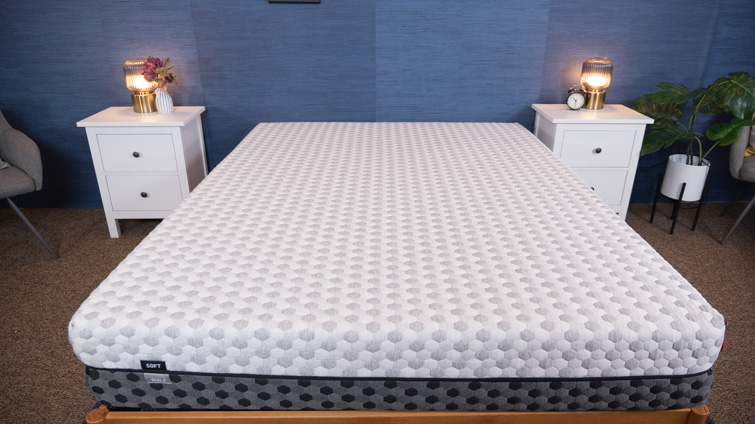
Layla Mattress

Product Details
Our Recommendation
Financing Options
Financing options are available for this mattress.
Since its founding, Muse has been on a mission to provide customers with sleeping experiences that are specifically tailored to their unique preferences. That’s why the brand’s flagship mattress comes in three different firmness levels (soft, medium and firm), all of which are built to target sleepers in different ways.
Today I took the medium firm version of the Muse for a spin, testing out its firmness, pressure relief and motion transfer to figure out how comfortable it actually is and whether or not it could be the mattress of your dreams!
Continue reading below for my full review of the Muse mattress. Don’t have time to read it all? Click here to skip to the bottom and check out my review summary.
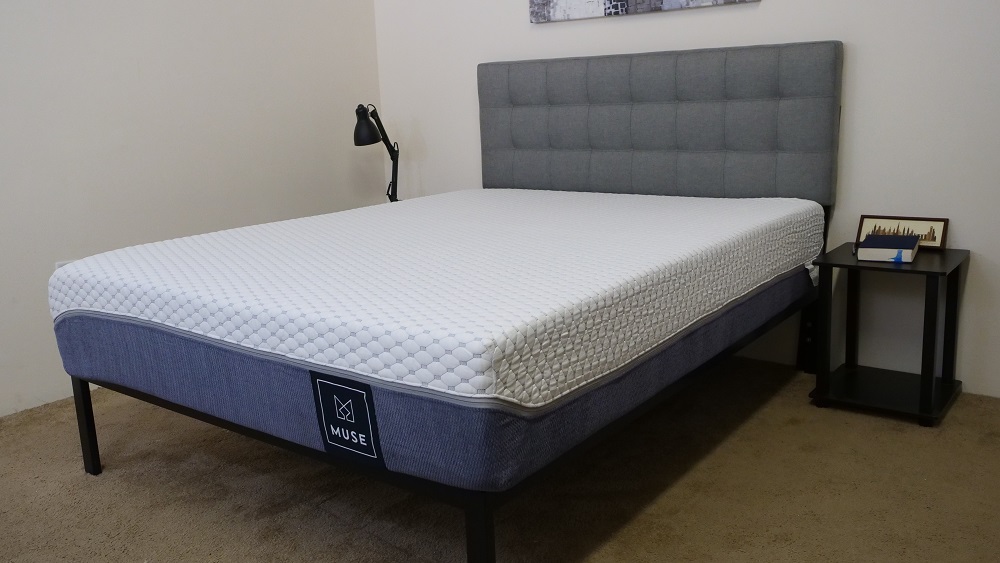
Muse Mattress

Product Details
Our Recommendation
Financing Options
Financing options are available for this mattress.
CONSTRUCTION
The Muse is built with three distinct layers of foam, measuring up to 12” of comfort. The top two layers are made of memory foam, which tells me I should prepare for some quality body contouring and pressure relief. This material has a reputation for overheating, so I’ll also be interested to see if and how the Muse works to combat this.
But enough talk! Let’s dive into these layers and see what’s going on down below.
Cover – The face of the cover is made of polyethylene which helps regulate temperature by absorbing the ambient temperature in the room, which is generally cooler than your body. This helps to offset the heat your body transfers to the surface of the mattress, creating a cooler sleep environment. It’s got a soft, cool and stretchy feel to it and is also totally removable, which means you can throw it in the wash with the rest of your bedding.
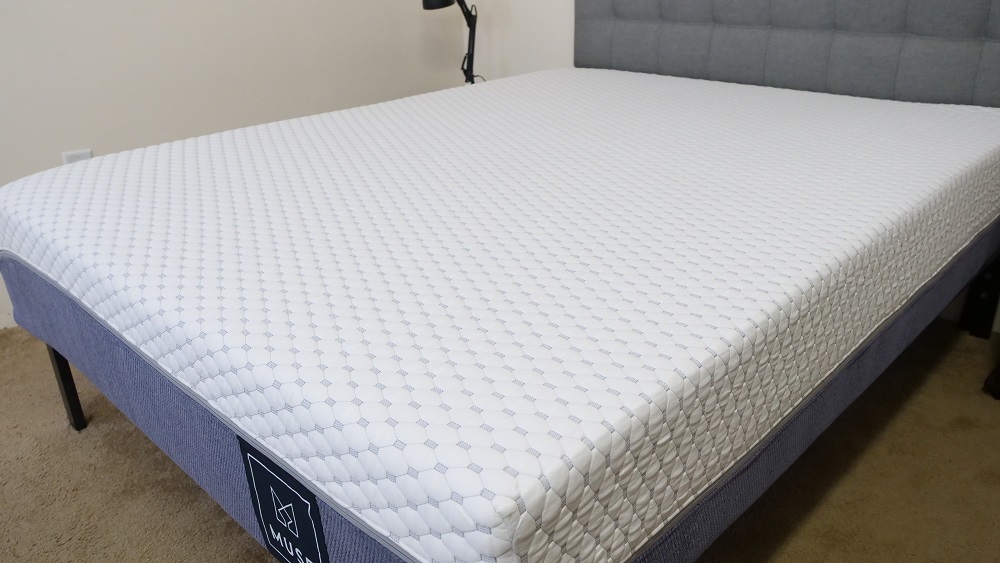
Comfort Layer – The comfort layer is comprised of 2” of gel-infused memory foam (4 PCF). This layer is slow to respond to pressure and produces some excellent body contouring. As I mentioned up top, this material is known to overheat, so the infusion of cooling gel helps to dissipate said heat and regulate the bed’s overall temperature.
Contour Layer – Below the comfort layer, you’ll find another 2” of memory foam (3 PCF). This section extends the body contouring of the top layer into the rest of the mattress, deepening the compression as you sink further into the structure.
Support Layer – And finally you’ll find 8” of high-density poly foam. This section acts as both the support and foundation of the mattress, imbuing the bed with durability and stability. It also functions as a secure landing pad for the softer foam layers above.
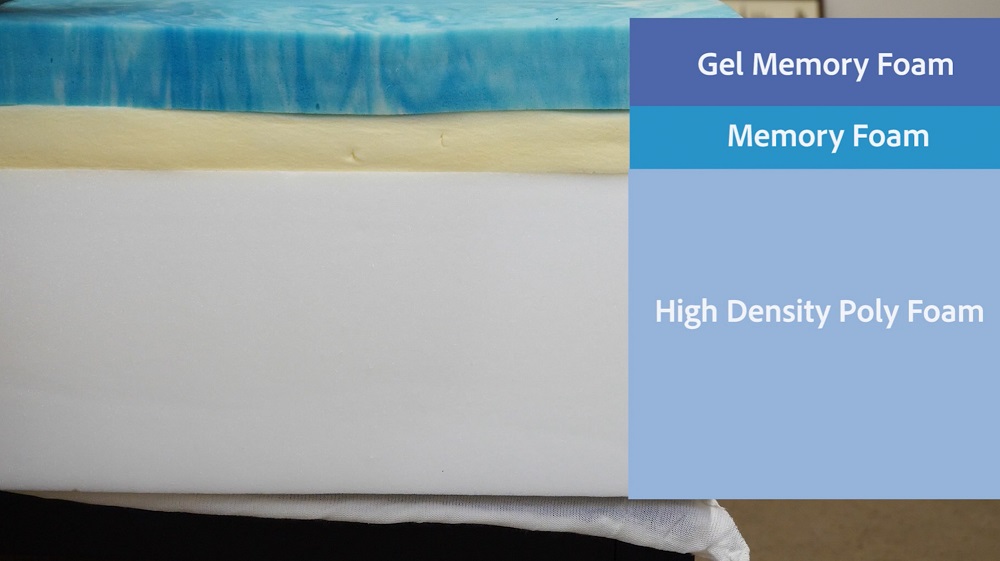
FIRMNESS
After taking a look at the construction of the Muse, let’s chat about the firmness and feel. I started off by applying light hand pressure to the mattress and was immediately interacting with the soft memory foam top layers. I sank snuggly into these sections and noticed that the materials contoured nicely around my hand. Pushing in further, I encountered the high-density support layer, which helped to lift me out of the structure.
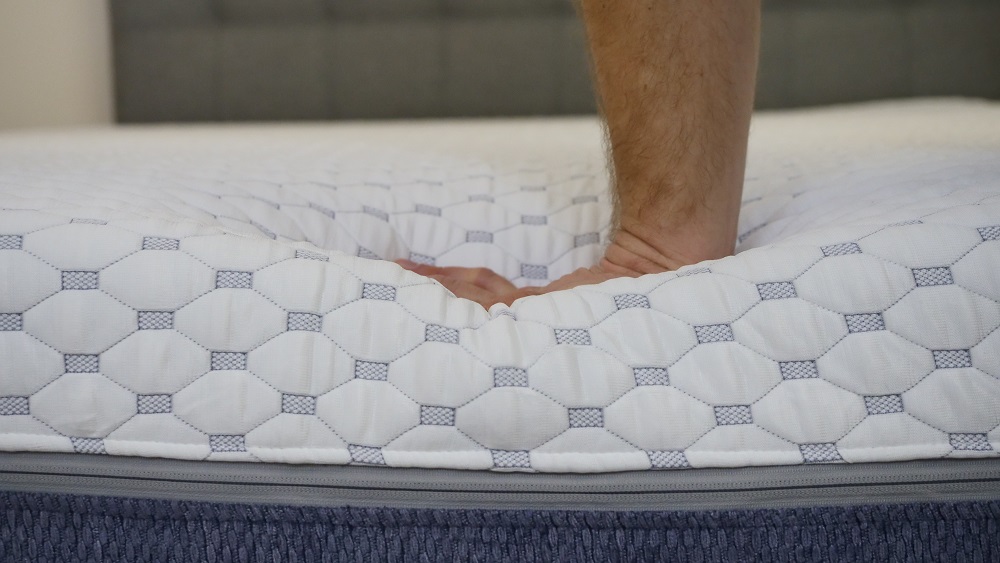
People of different body types and shapes are obviously going to feel firmness differently, so I’ve enlisted three other people to help me figure out how firm the Muse is. Each one of them laid on the mattress and reported back their personal firmness rating to me, which I compiled on a graph alongside my own.
Since feel and firmness can be so objective, this will give you a general sense of the firmness range you can expect from the mattress.
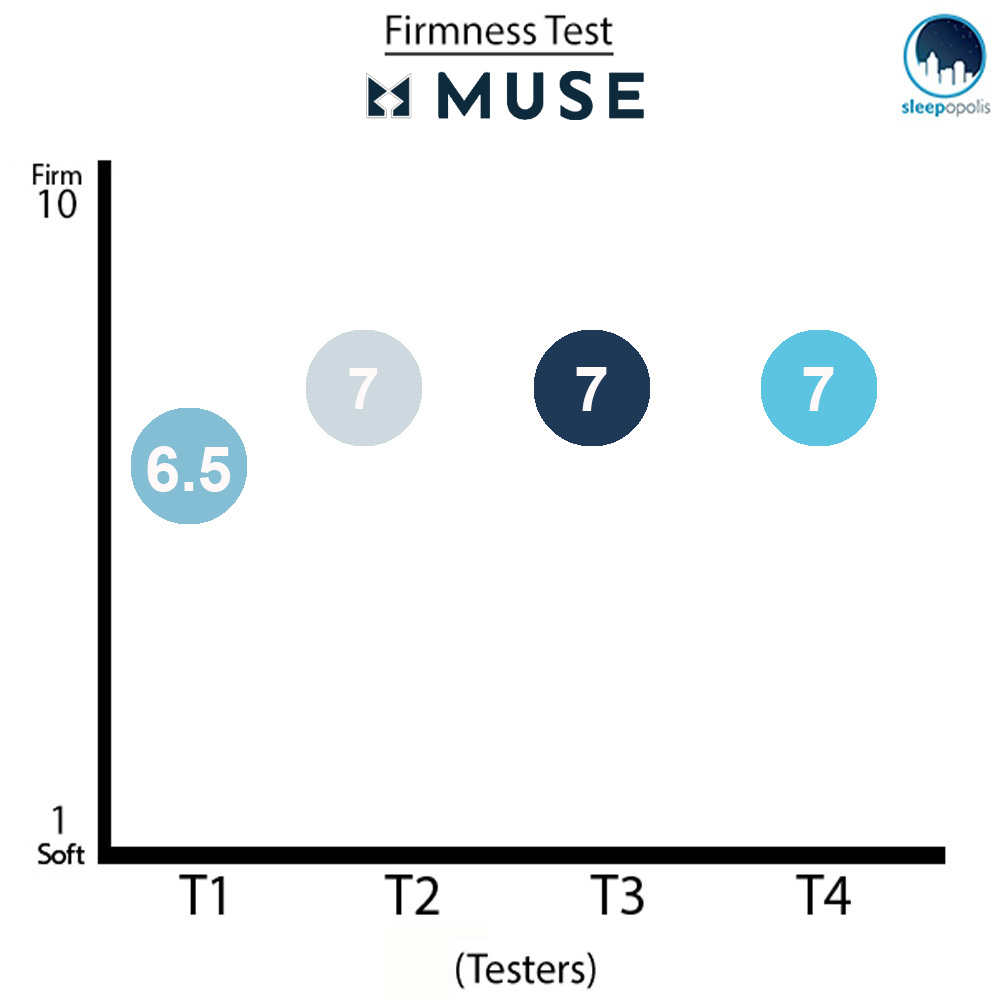
As you can see in the graph above, my testers were almost in unanimous agreement about the firmness of the Muse, giving it an average rating of 6.9. When compared to the industry standard of 6.5 for medium firmness, it seems this mattress is just a touch above medium firm.
I personally gave the the bed a 6.5 rating, finding it to be pretty much exactly medium firm. I suspect my fellow testers gave the Muse higher ratings because of the deceptive firmness of memory foam—when you first sleep on the material, it feels hard, but quickly gives way to a cozy snugness. This cushiony embrace coupled with the support of the high-density poly foam is great for a variety of sleepers, but would be especially great for side sleepers or those who doze in multiple positions.
I’ll remind you that I’m only looking at the medium firm Muse today, so if you like what you’ve read so far but feel like you’d want something softer or firmer, consider checking out the other two models.
PRESSURE MAP
Rather than just describing the feel of the Muse to you, I want to give you a better sense of where you might feel pressure points form while sleeping on it. To do this, I placed a pressure map on top of the bed and lied on my back, side and stomach.
You can see the results on the image below where pressure is represented from blue (low pressure) to red (high pressure).
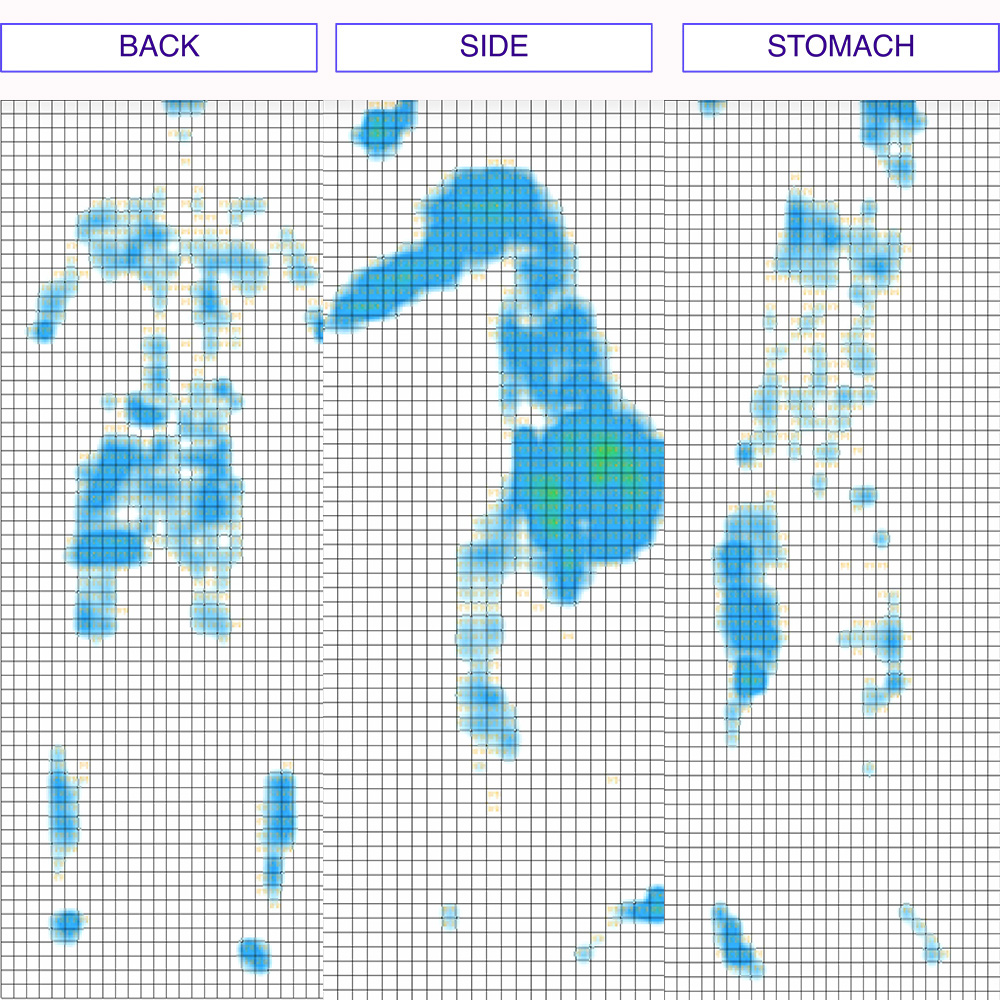
Back – Lying on my back, I felt a lot of great pressure relief. The top layers of memory foam not only filled in the space at my lumbar region, but also contoured pleasantly to the curves of my body. I should note that the memory foam did make it a bit difficult to switch positions, which may not be the most ideal feel for some sleepers.
Side – The four inches of memory foam make an excellent support system for side sleepers. As you can see in the graphic, I didn’t feel any pressure forming at my shoulders and hips, which are typical problem areas for people who sleep primarily on their sides.
Stomach – Stomach sleepers tend to prefer firmer mattresses as they prevent their hips from sinking in too much resulting in poor spinal alignment. That being said, on the medium firm Muse I definitely felt this sinkage at my hips, which caused some pressure points to form. So, if you’re a stomach sleeper who likes memory foam, I’d suggest checking out the firmer version of this mattress.
Hip and shoulder pain? Check out my top picks for side sleepers.
MOTION TRANSFER
Next, let’s take a look at the Muse’s motion transfer, which will be important for those of you who plan to share your bed with a partner. This test will demonstrate the intensity of motion you’re likely to feel from one side of the mattress to the other.
To illustrate this motion transfer, I dropped a 10 lb. steel ball from heights of 4 inches, 8 inches and 12 inches and measured the disturbance it caused: the bigger the lines, the bigger the disturbance.
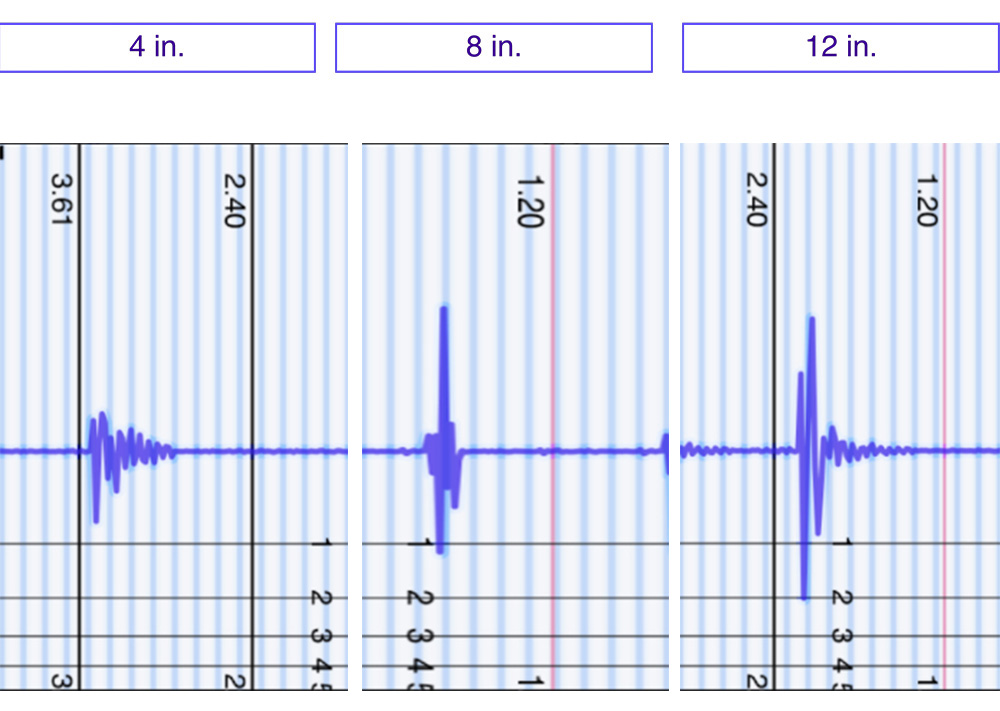
As you can see in the graphic, these are pretty phenomenal motion transfer results. The all-foam construction works to isolate and dissipate movement both across the surface and deeper into the core of the mattress. Based on this test, I’d say the Muse would make a fantastic bed for couples, especially those made up of partners with different sleep preferences.
SINKAGE TEST
Another important thing to consider when making a new bed purchase is how much sinkage it features. Most people want to know whether they’ll feel like they’re sleeping “in” their new bed or “on top” of it, so I’ve set up our next test to tell me how much sinking you can expect to experience from the Muse.
To visualize this, I placed four balls of varying sizes and densities (a 6 lb medicine ball, a 10 lb steel ball, a 50 lb medicine ball, and a 100 lb medicine ball) on the mattress and measured how much they compressed the surface.
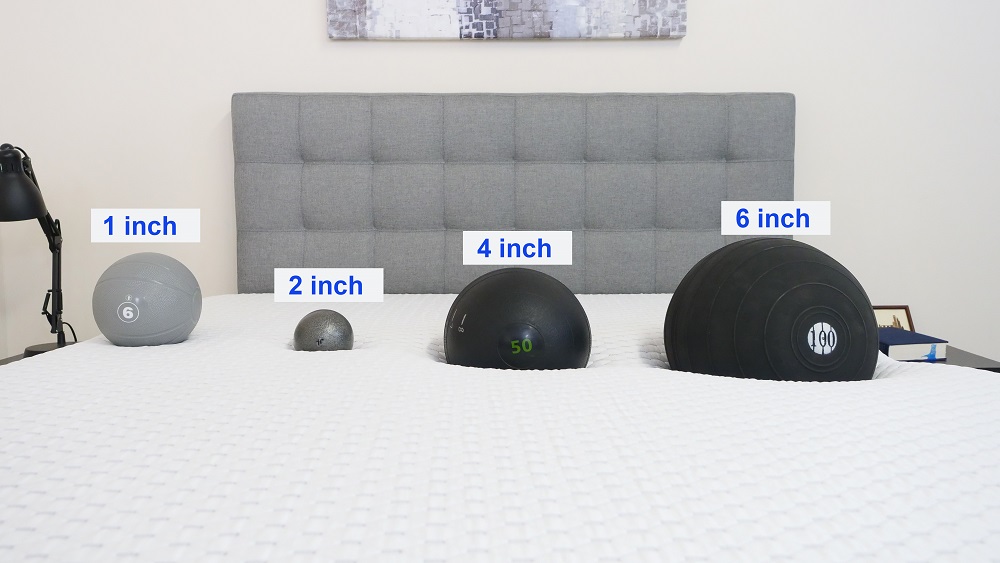
The variations in size, weight and density are meant to simulate different body parts and different sized sleepers.
- 6 lb medicine ball: 1 inch of sinkage.
- 10 lb steel ball: 2 inches of sinkage.
- 50 lb medicine ball: 4 inches of sinkage.
- 100 lb medicine ball: 6 inches of sinkage.
This is actually less sinkage than I was expecting from the Muse, but is pretty much average with most other all-foam mattresses on the market. Given that the top two layers are made up of contouring memory foam, I would’ve thought the lighter balls would sink deeper into these sections. What this tells me is that the high-density poly foam does a good job of supporting the sleeper to prevent them from feeling enveloped by the bed. However, I will say that this is still a fairly decent amount of sinkage, which is great for side sleepers or those in need of some extra pressure relief.
EDGE SUPPORT
And now for my last test, which is all about edge support. What this basically means is that I’ll be testing the Muse to see how it supports the sleeper at the side of the bed, which will be important for anyone who needs to use the entire surface area of the mattress.
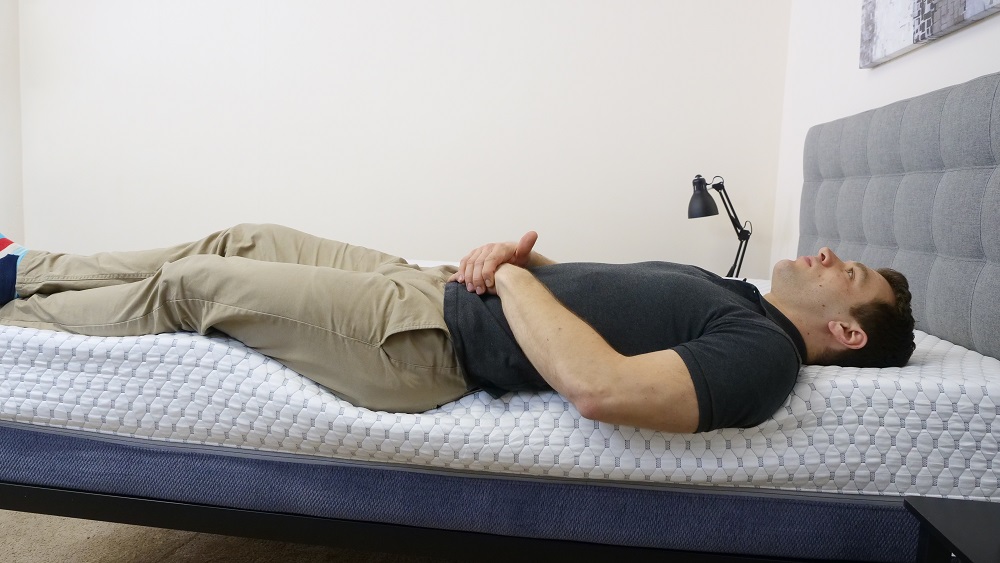
Lying on my back near the edge, I felt as supported as I did in the center. The Muse did a great job of securing me in this position, even as I experienced deep contouring from the memory foam top layers. As you can see in the photograph, there was a healthy amount of compression here, but I never felt like the structure would crumple under me and send me rolling out of bed.
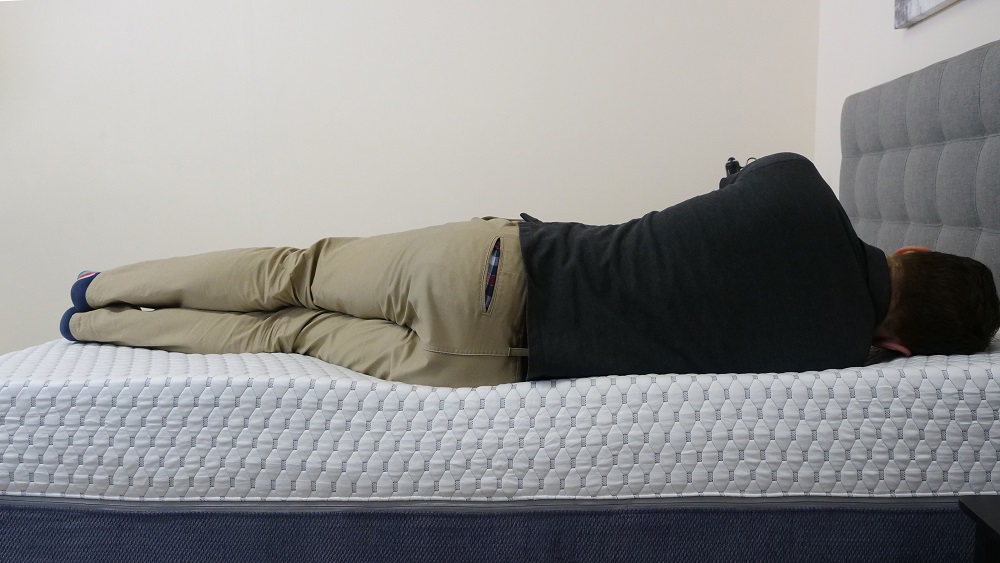
I continued to feel fantastic support as I rolled onto my side. There was again a good deal of compression in this position, but nothing that made me feel anything less than solid at the edge. I’d say the Muse features some of the best edge support of any mattress I’ve tested, which confirms in my mind that it’d make a great bed for couples.
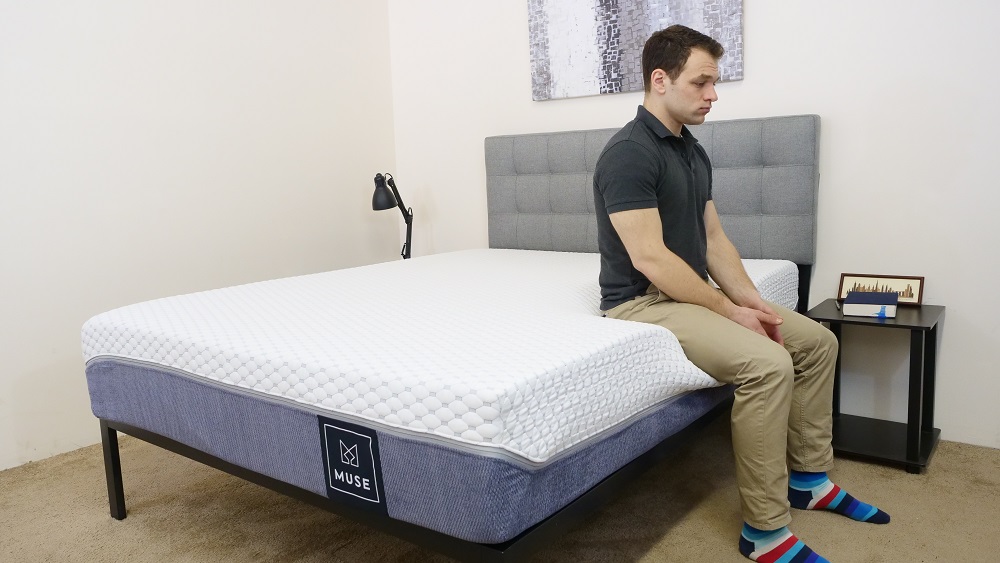
In this position, I wanted to simulate what it would feel like to sit on the bed in the morning while you’re slipping on your socks and getting ready for the day. A lot of foam mattresses experience severe compression in this seated position, but the Muse actually held up super well. I’m thoroughly impressed with this bed’s edge support!
BASIC INFORMATION

- Sleep Trial: 120 days.
- Warranty: 10 years.
- Shipping: Free, arrives compressed in a box.
Just getting started? Begin your mattress search with my mattress reviews breakdown.
SIZE AND PRICING INFORMATION
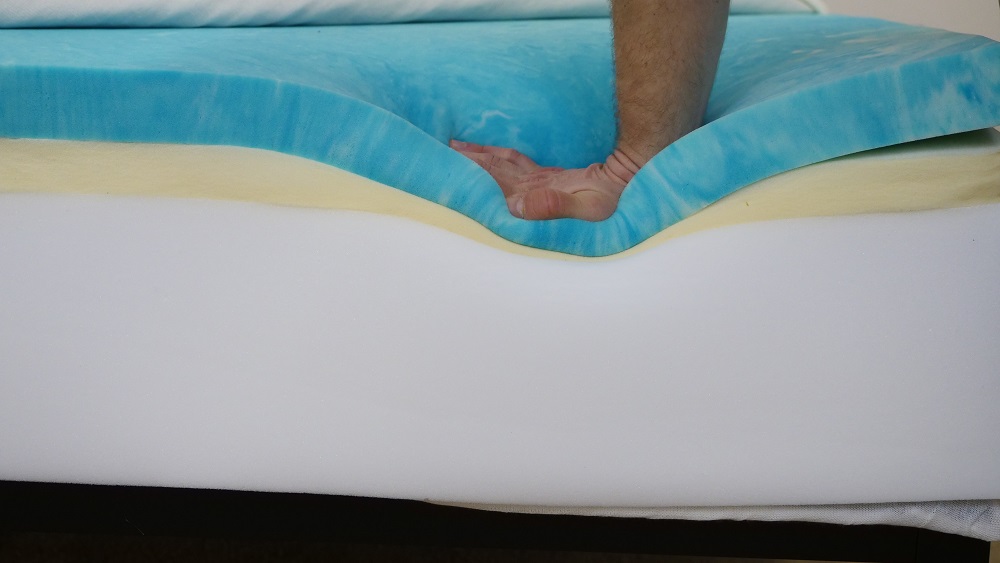
If you’re convinced the Muse is the right mattress for you, the size and pricing information for the mattress are below. Please note that these prices reflect standard pricing, but coupons may be available.
IS THE MUSE MATTRESS RIGHT FOR YOU?
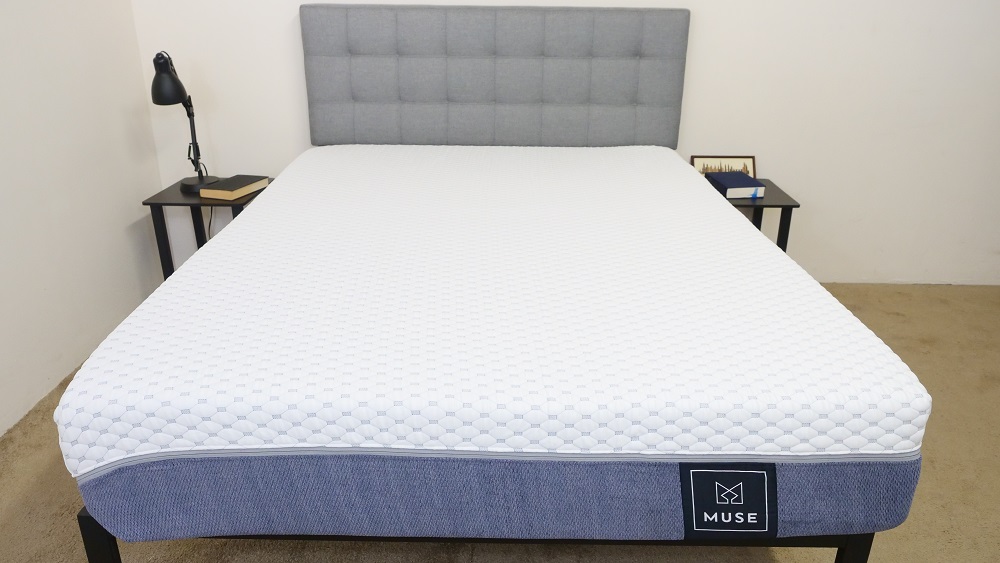
Now that we’ve taken a closer look at the Muse mattress, it’s time to discuss who it’d be a good fit for.
- Side sleepers – The all-foam construction in the Muse lends itself well to side sleepers who will find a lot to love in the ample pressure relief this design provides.
- Couples – The Muse would also be great for couples as it did super well on the motion transfer and edge support tests, showing that you’re not likely to be disturbed by your bed mate as they toss and turn at night.
- Classic memory foam feel – Given that the mattress is built with so much memory foam, it’s no surprise that it would be a great option for anyone enamored with the material. Expect plenty of sinkage, body contouring and pressure relief from this bed.
For more information on the Muse, check it out here!
Muse Mattress
-
Materials
-
Comfort
-
Support
-
Value
-
Cooling
-
Edge Support
-
Trial
-
Warranty